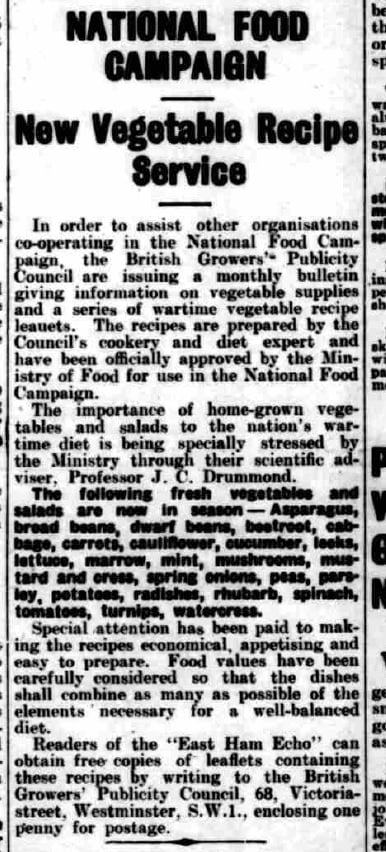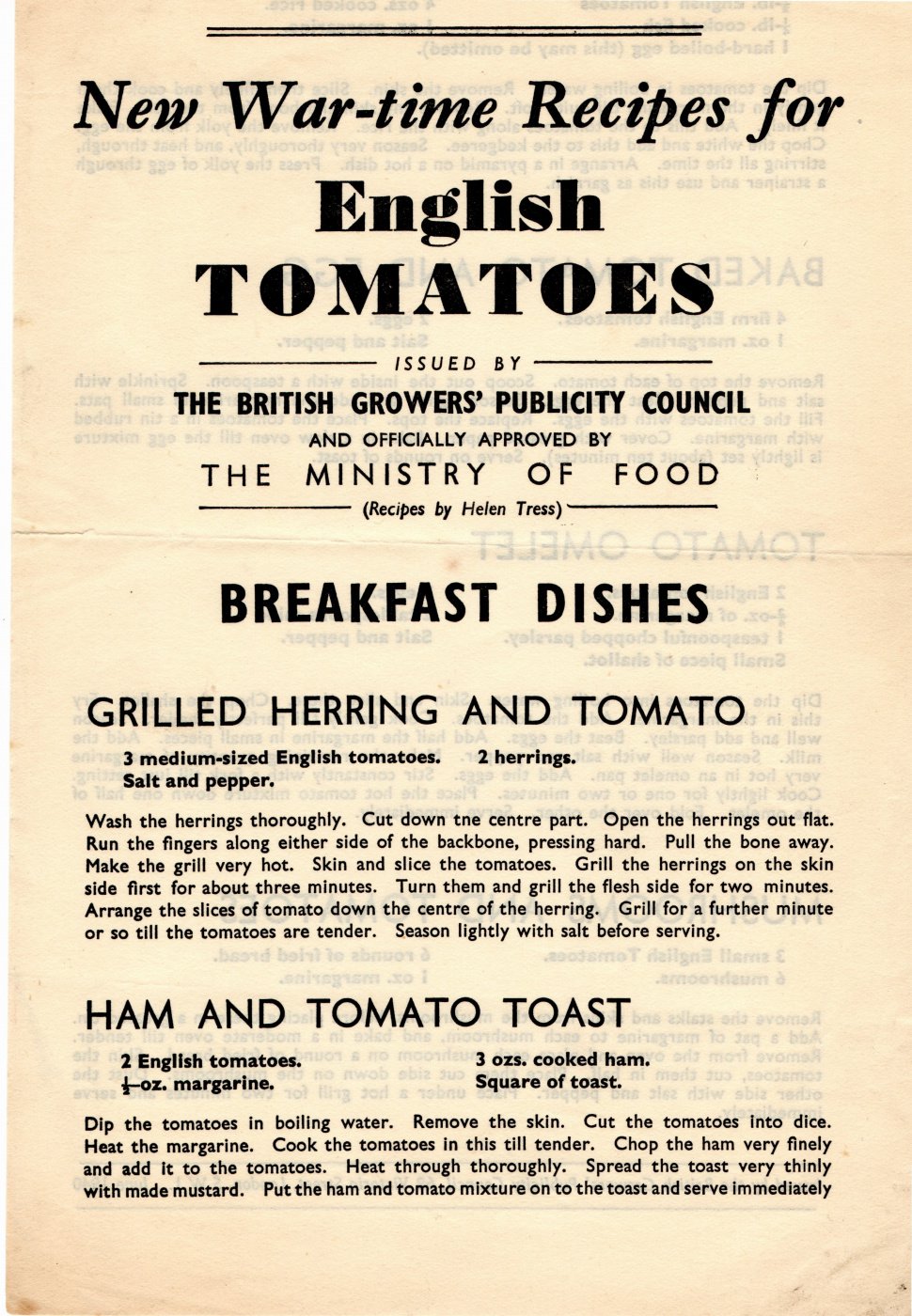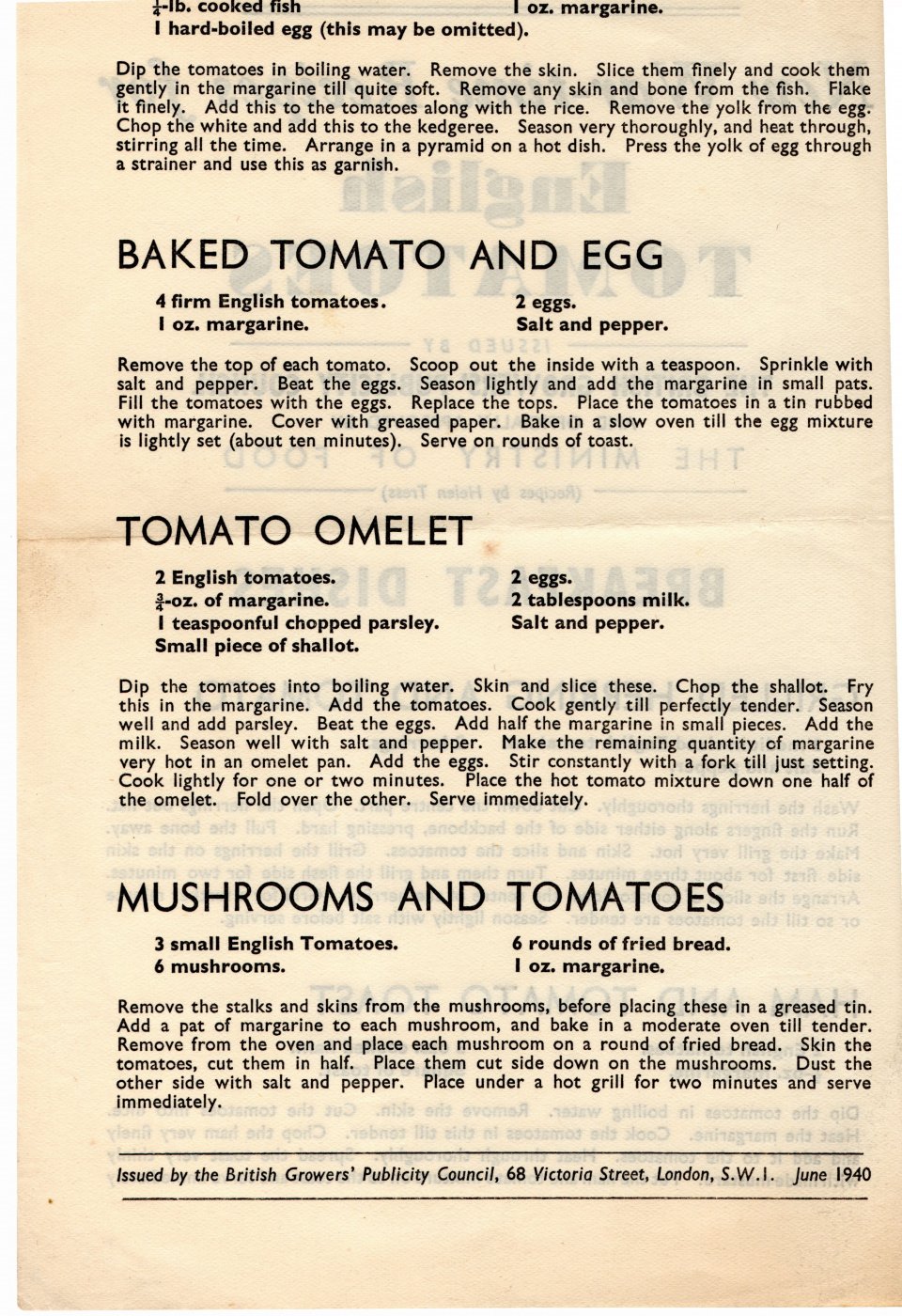This Forum will close on Wednesday 27 March, 2024. Please refer to the announcement on the Discussions page for further detail.
my latest challenge "national food campaign"
they say everyone need a challenge my
latest in finding all the leaflets in this series.
here are the ones i found so far.


latest in finding all the leaflets in this series.
here are the ones i found so far.



0
Posts
perhaps you can search the archives here
https://gardenmuseum.org.uk/
Gardening in Central Norfolk on improved gritty moraine over chalk ... free-draining.
you may try looking for dried egg for omelettes .
"Rationing in Britain was hard – but shortages were far worse elsewhere. Collectively, 20 million people died as a result of malnutrition in the war, compared to 19.5 million in combat. In Ukraine, peasants dug up dead horses to eat their flesh, while in Greece, 2,000 people perished every day from hunger. In Britain, rationing created the best-nourished generation of pregnant women in history, as poor people received enough nutrients to maintain their health."
"But, being Britain, fish and chips were never rationed. Professor John Walton, author of Fish and Chips and the British Working Class, told the BBC that safeguarding the national dish was a priority for the government. "The cabinet knew it was vital to keep families on the home front in good heart," he said. "Unlike the German regime that failed to keep its people well fed, and that was one reason why Germany was defeated. Historians can sometimes be a bit snooty about these things but fish and chips played a big part in bringing contentment and staving off disaffection."
https://www.independent.co.uk/life-style/health-and-families/features/75-years-on-from-rationing-what-did-we-learn-9963115.html
Cambridgeshire/Norfolk border.
My mum, and almost everyone she knew didn’t even go to the doctors to register that they were pregnant, they just called a midwife or someone local to help with the birth.
it depended on you lived as to how good things were.
People living in the country did better, farmlands around, chickens for eggs. It wasn’t so easy in heavily populated towns, not everyone could keep chickens or grow food, the little back yard would never have produced enough food for a family with about 10 children.
Gardening in Central Norfolk on improved gritty moraine over chalk ... free-draining.
We also went ormering at appropriate tides, otherwise know as abalones.
My father used to cycle to work so when he brought home a road kill rabbit it was wonderful!
My grandmother managed to hatch some chicks from the French eggs we used to have.(We were living on Guernsey so food was extremely short). They were bantams of some kind, plus a cockerel which was the Devil incarnate. OMG! was he aggressive. Magnificent to look at, until he attacked my grandmother from behind. Then he was in the pot, tout suit.
neck of lamb now is a ridiculous price.
My mum only bought the mushroom stalks, they’d fall off the mushrooms on the greengrocers stall and he would bag them up separately.
Vegetables weren’t on ration but not always available.
We never had pasta as a meal back then.
If War Garden thinks he’s going to have two eggs for breakfast, he’s well mistaken.
This may be of interest https://www.cooksinfo.com/british-wartime-food/
Gardening in Central Norfolk on improved gritty moraine over chalk ... free-draining.